As much as The Walking Dead earned its reputation for its bloodshed and gore, the most brutal scene in the comic series wasn’t violent at all, and didn’t include any zombies. In fact, it featured series protagonist Rick Grimes sitting alone in a room, imagining an emotionally charged conversation with his dead wife, while talking into a disconnected telephone.
The Walking Dead #51 – written by Robert Kirkman, with art by Charlie Adlard – proceeded in the aftermath of the fall of the prison sanctuary, during which Lori Grimes and her baby daughter Judith were killed.
As a grieving Rick Grimes reached a psychological breaking point, he and his son Carl took refuge in an abandoned home. When the telephone inexplicably started ringing, Rick answered it – and by the end of the issue, the result was a scene that stands among the most intense moments in The Walking Dead’s long run.
Rick’s Phone Call With Lori After Her Death Is Walking Dead’s Most Emotionally Intense Scene
The Walking Dead #51 – Written By Robert Kirkman; Art By Charlie Adlard
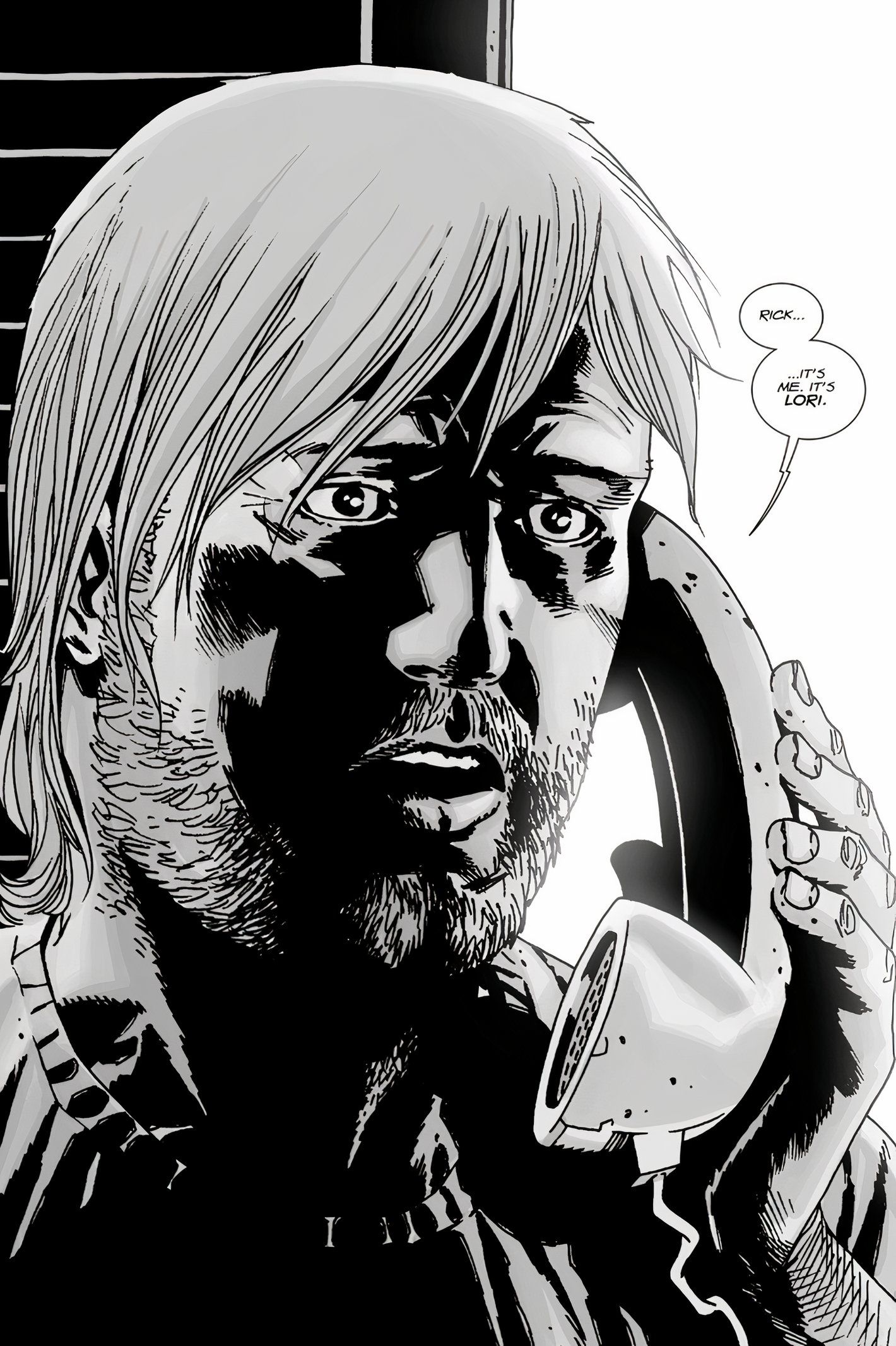
Lori’s death is among the most horrific in The Walking Dead comic, and perhaps has the most lasting impact of any in the series… The Walking Dead #51 is the issue that most directly confronts the gravity Rick’s grief, while also giving Lori a voice even post-mortem.
Violence was a necessary part of The Walking Dead, but it can at times preoccupy readers, at the expense of the human drama that was at the core of the comic series. Robert Kirkman’s zombie opus was relentless in its pursuit of deeply resonant emotional story moments; character deaths played an important role in that, but all along death, and the constant threat of it, was intended to throw into sharp relief how the survivors lived their lives in response to the end of the world.
In The Walking Dead #51 Rick Grimes’ phantom phone call with his wife – recently killed by the Governor’s forces – provided the perfect illustration of this. Under most circumstances, the death of his wife and daughter would be an insurmountable tragedy; in the midst of the zombie outbreak, it is something Rick has to immediately put behind him, in order to keep himself and his son alive. The Walking Dead #51 is a study of the character’s response to the extremity of his conditions.
Lori’s death is among the most horrific in The Walking Dead comic, and perhaps has the most lasting impact of any in the series, given Rick and Carl’s central role until the end. The Walking Dead #51 is the issue that most directly confronts the gravity of Rick’s grief, while also giving Lori a voice even post-mortem; just as Rick wasn’t ready to part with her, it is evident that Robert Kirkman couldn’t immediately say goodbye to the character either.
Robert Kirkman Expertly Handled Rick’s Struggle To Process Lori’s Violent Death
A Low Point For Rick, A High Point For The Walking Dead
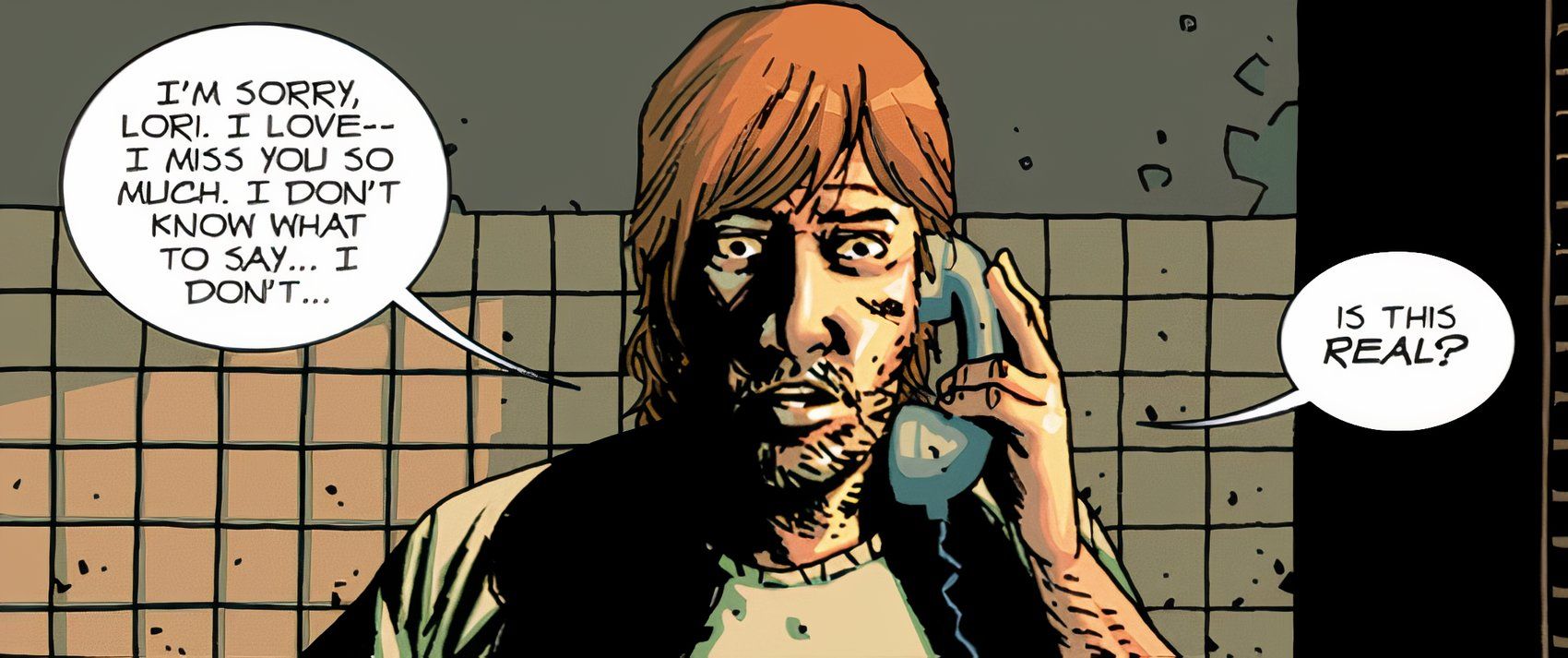
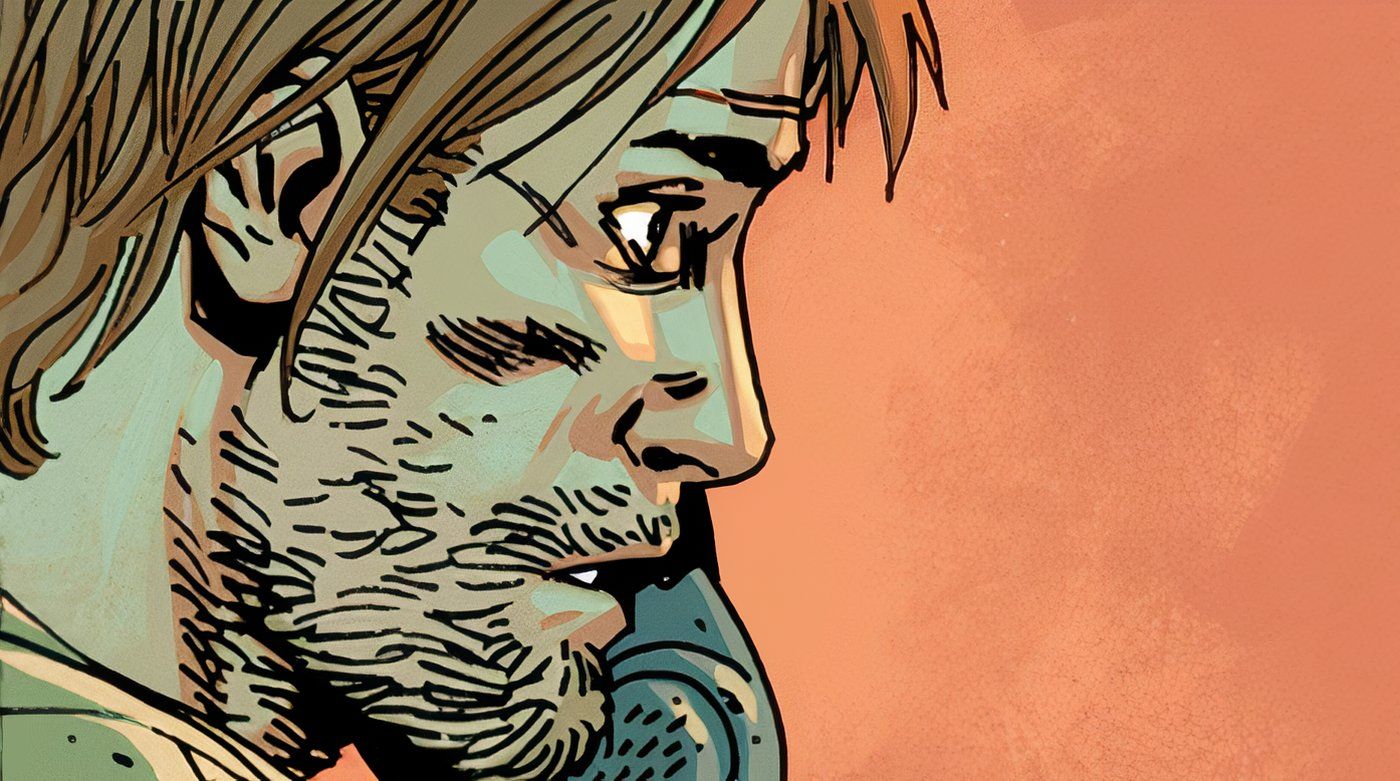
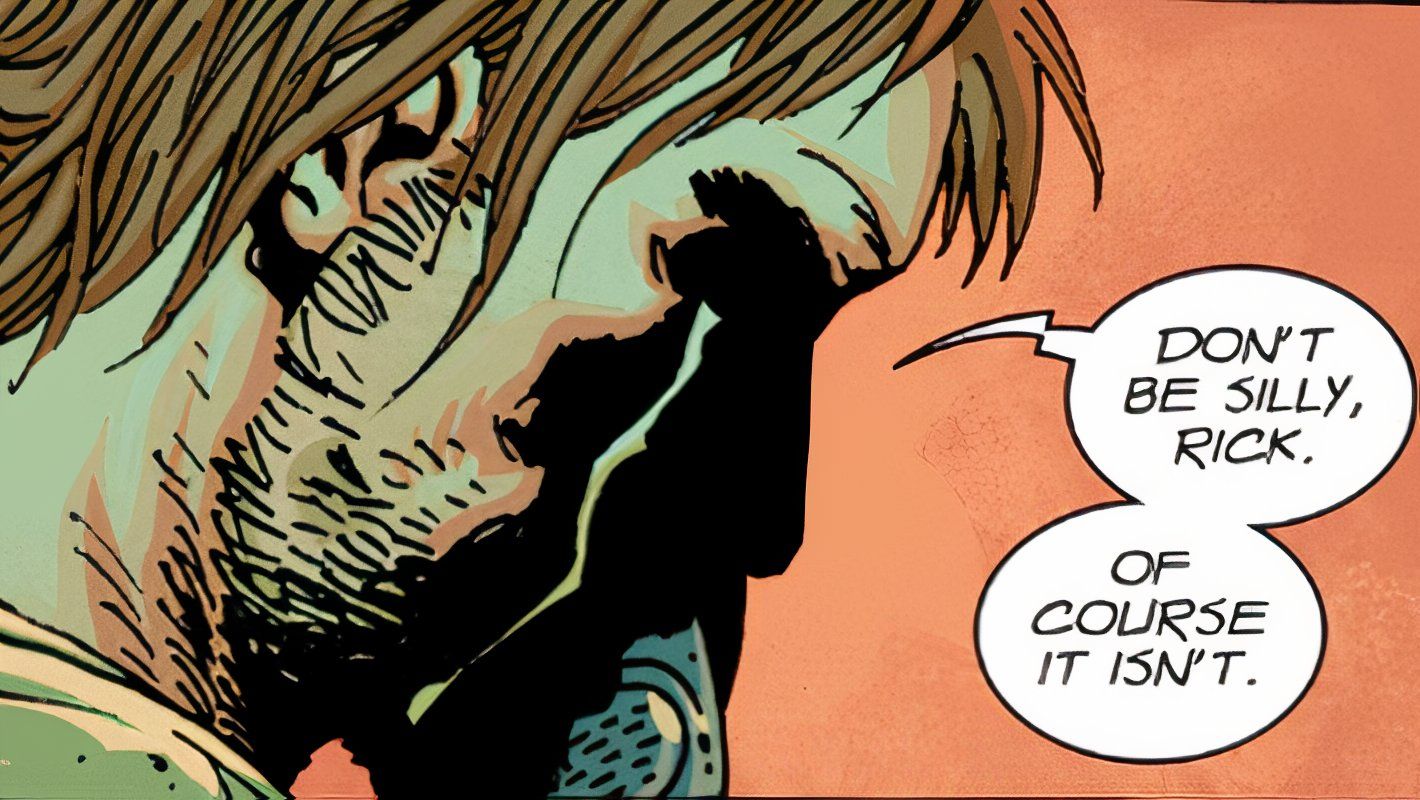
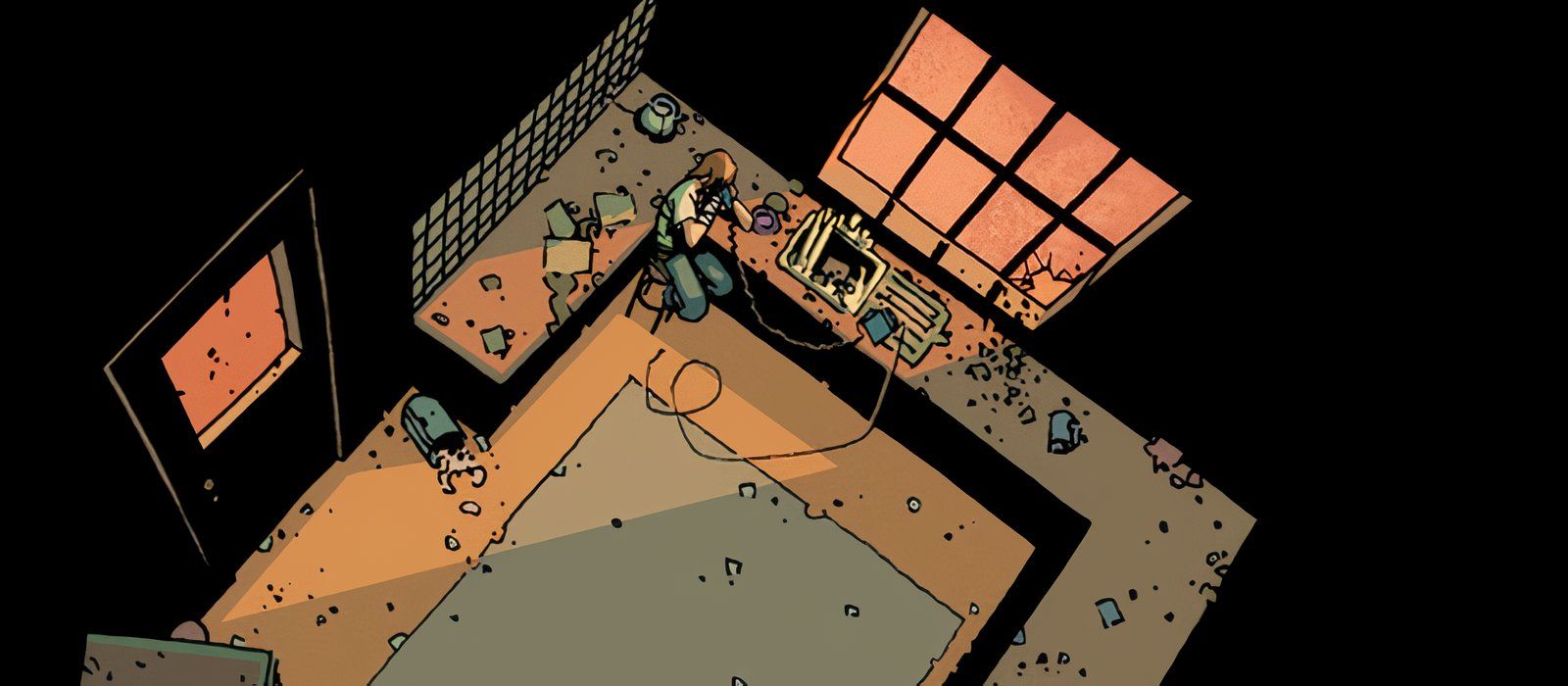
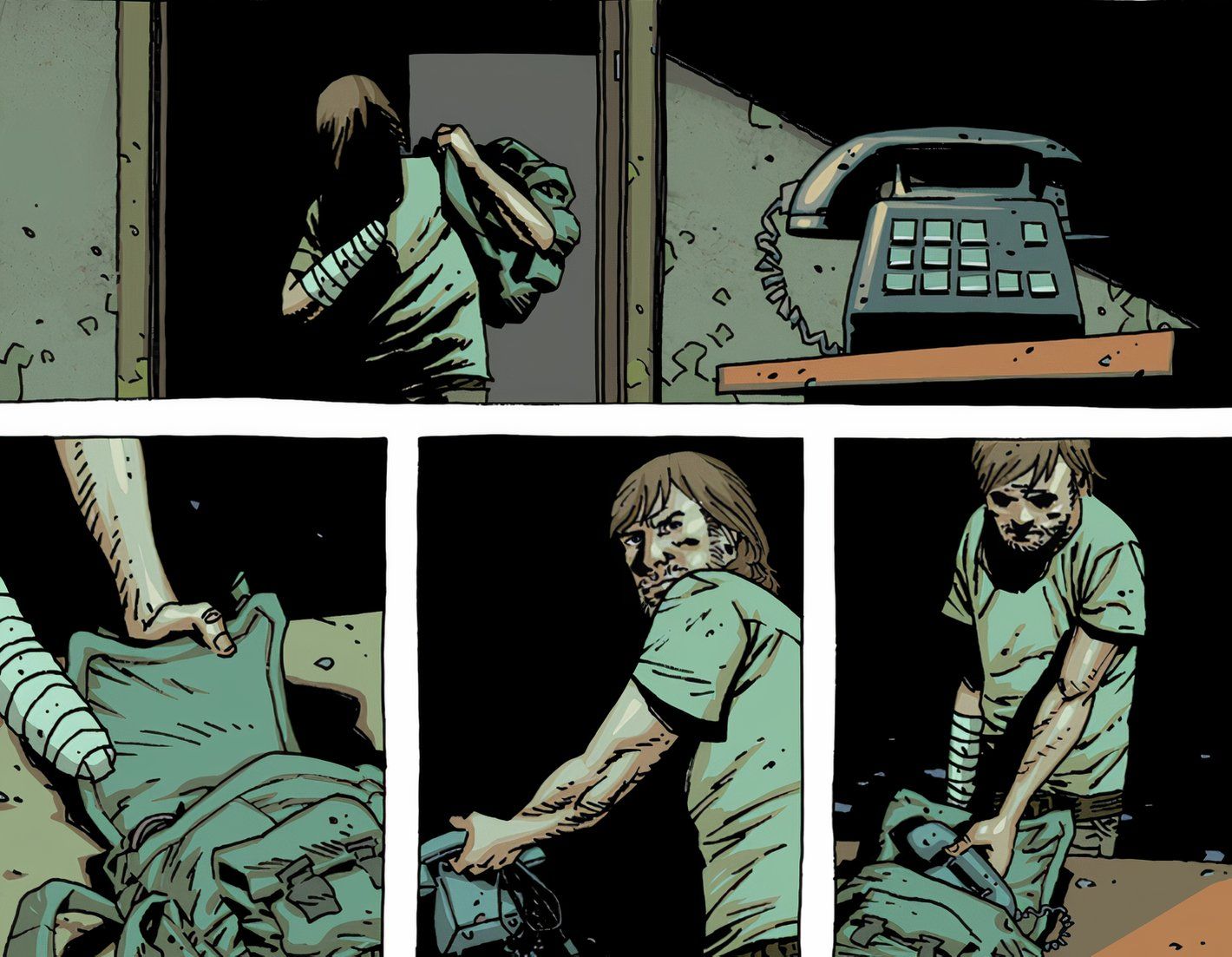
[ The Walking Dead #51] is one of the comic’s bleakest moments; not because anything scary or bloody happens, but because of how its protagonist dwells in the aftermath of violence and loss.
The Walking Dead #51 reads as one of the most deliberately crafted issues of the series, and functions as one of the strongest self-contained issues, given the series’ propensity for cliffhangers. Rick and Carl find the house at the beginning of the issue, and readers immediately know that Rick is deeply traumatized by Lori and Judith’s deaths when he answers the phone and begins speaking to someone. What follows is one of the comic’s bleakest moments; not because anything scary or bloody happens, but because of how its protagonist dwells in the aftermath of violence and loss.
That Rick is speaking to Lori, and that the phone does not even work, are both presented as reveals in The Walking Dead #51, though in both cases, most readers will have surmised these things before Rick does. This effectively adds to the overall dread that permeates the issue, which comes to a peak in the heartwrenching climax of the scene, in which Rick asks: “Is this real?” Of course, he knows the answer, because he supplies it for himself in Lori’s voice: “Don’t be silly, Rick. Of course it isn’t.’
Rick’s “Conversations” With Lori Were A Turning Point For His Character
A Crucial Moment
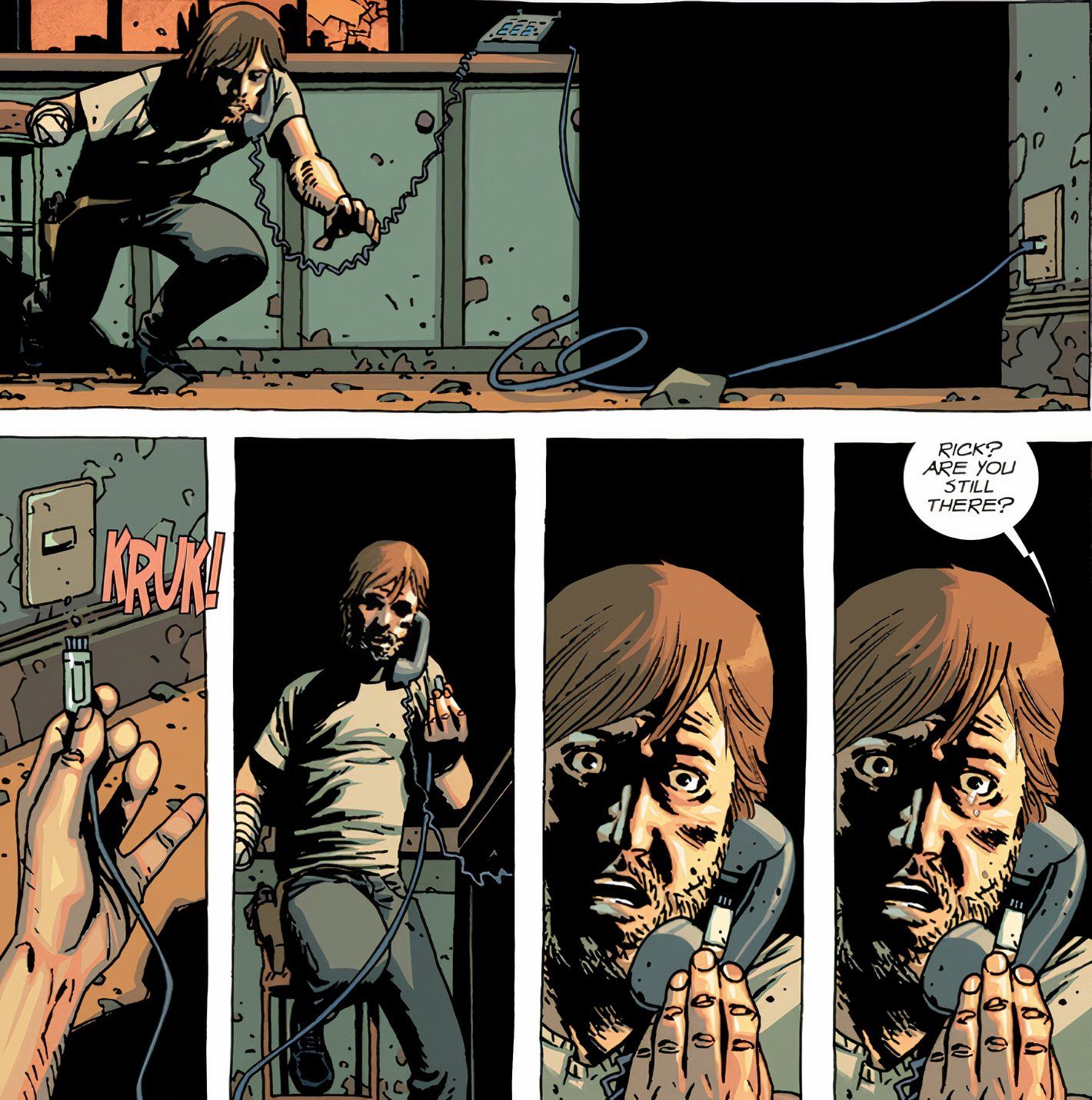
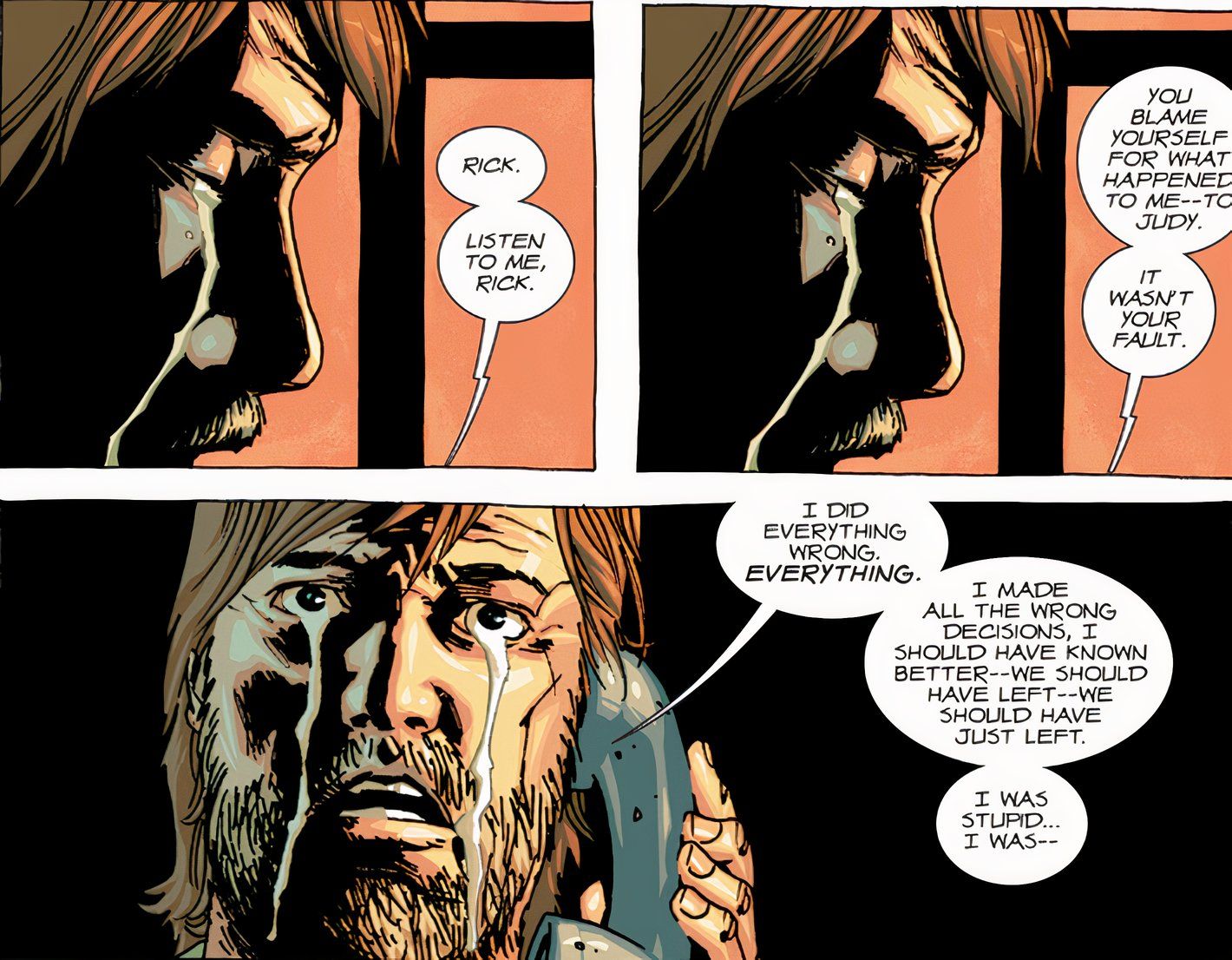

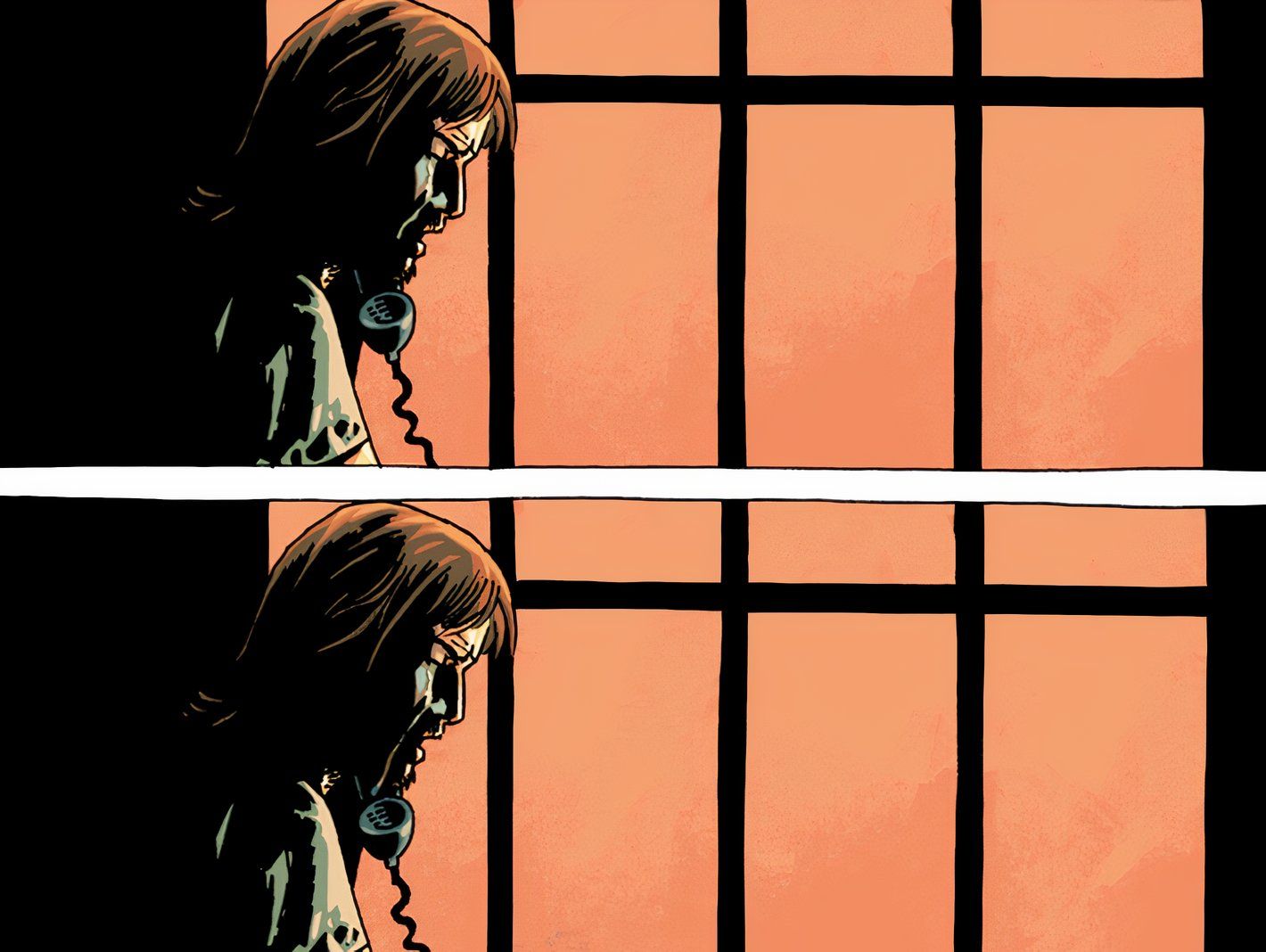
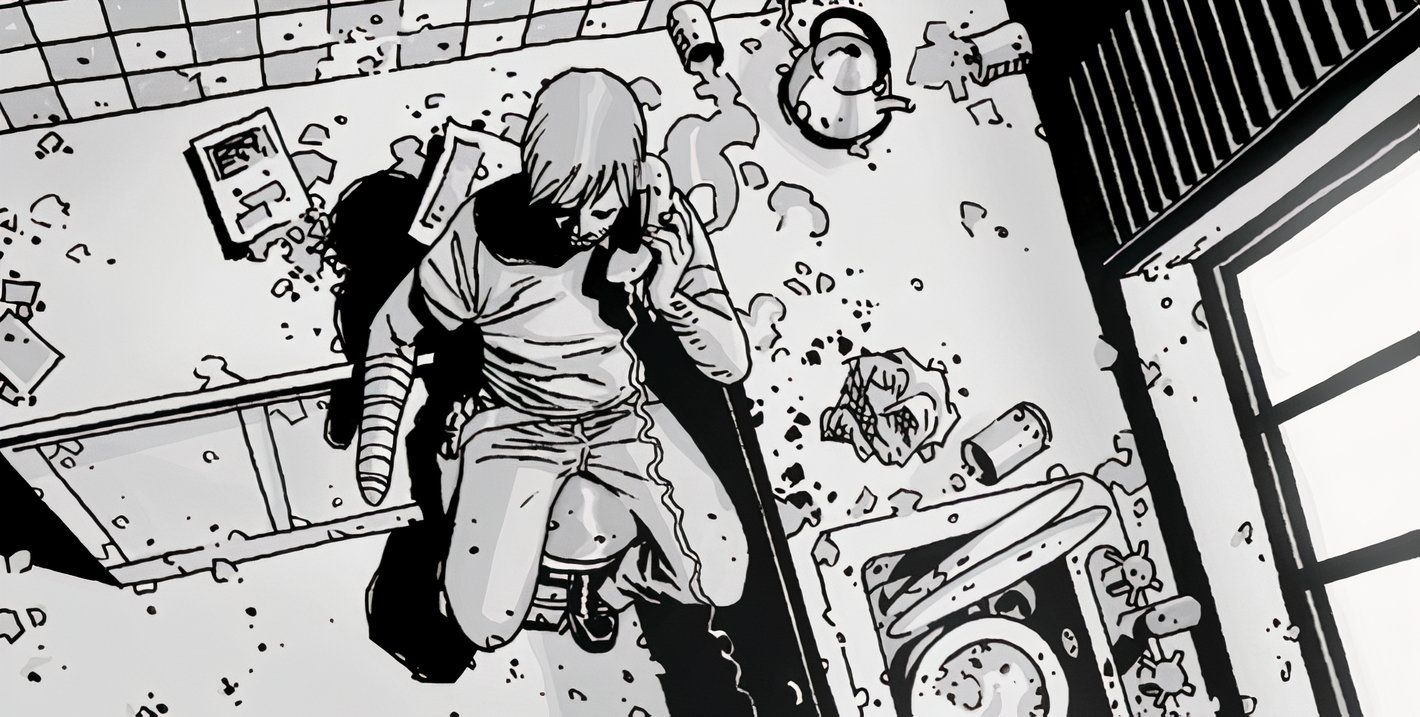
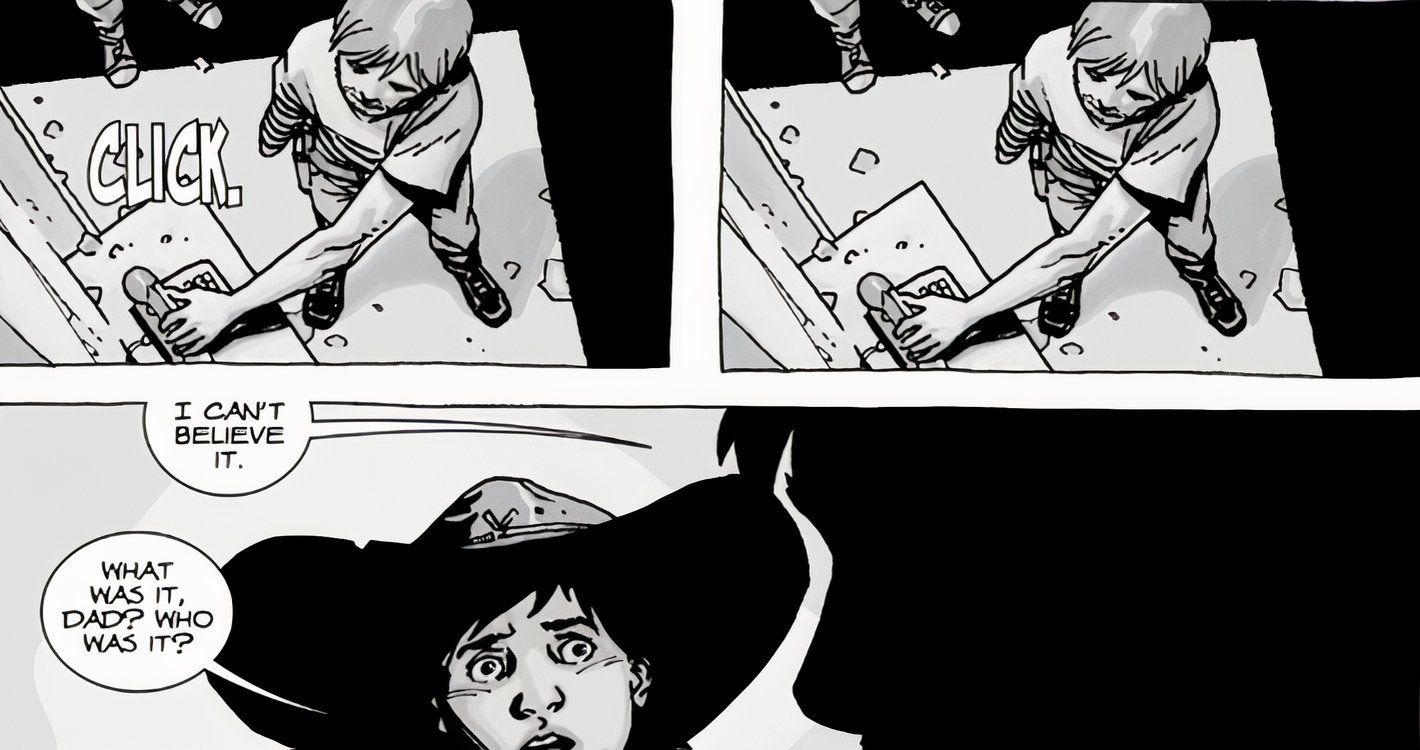
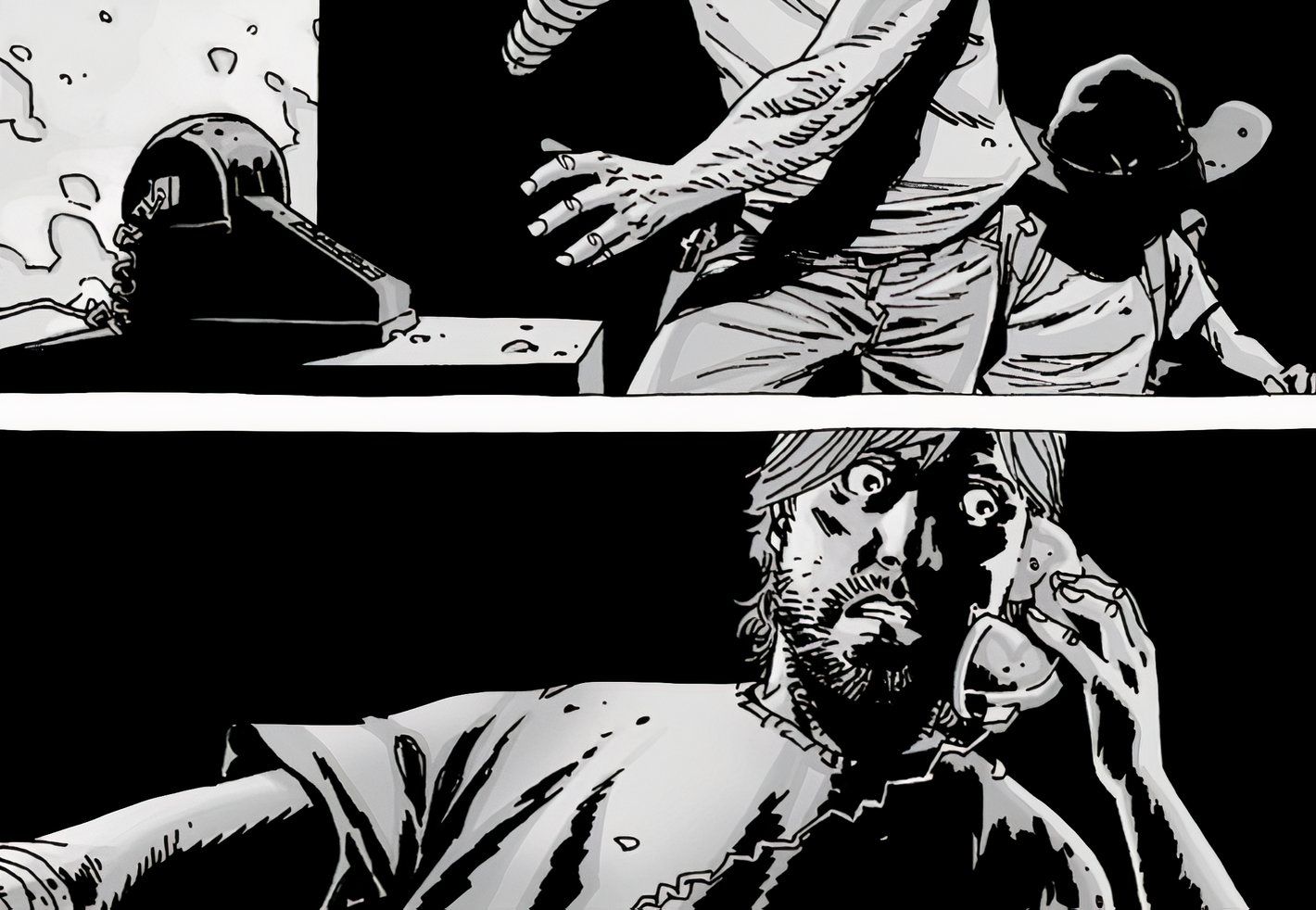
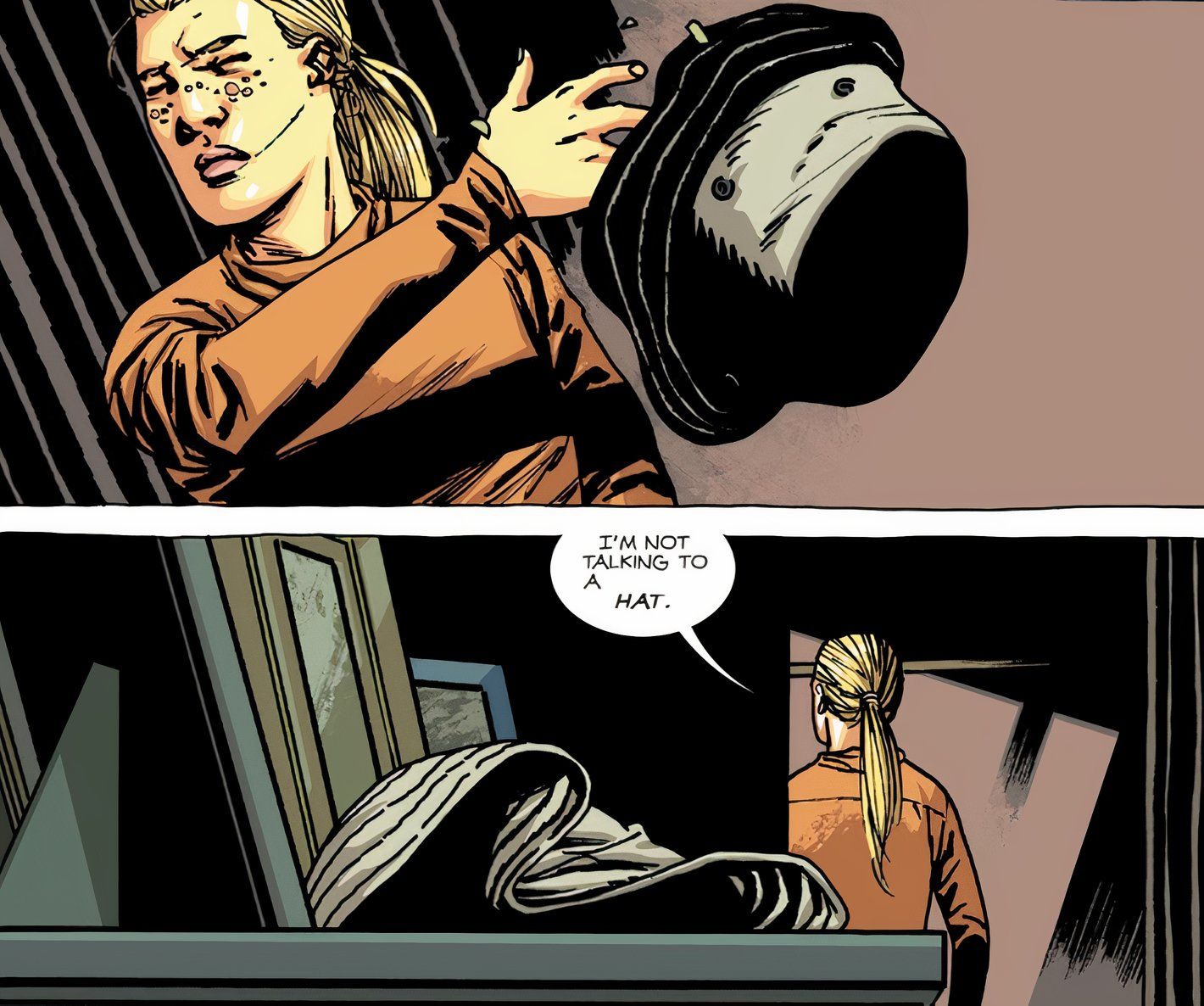
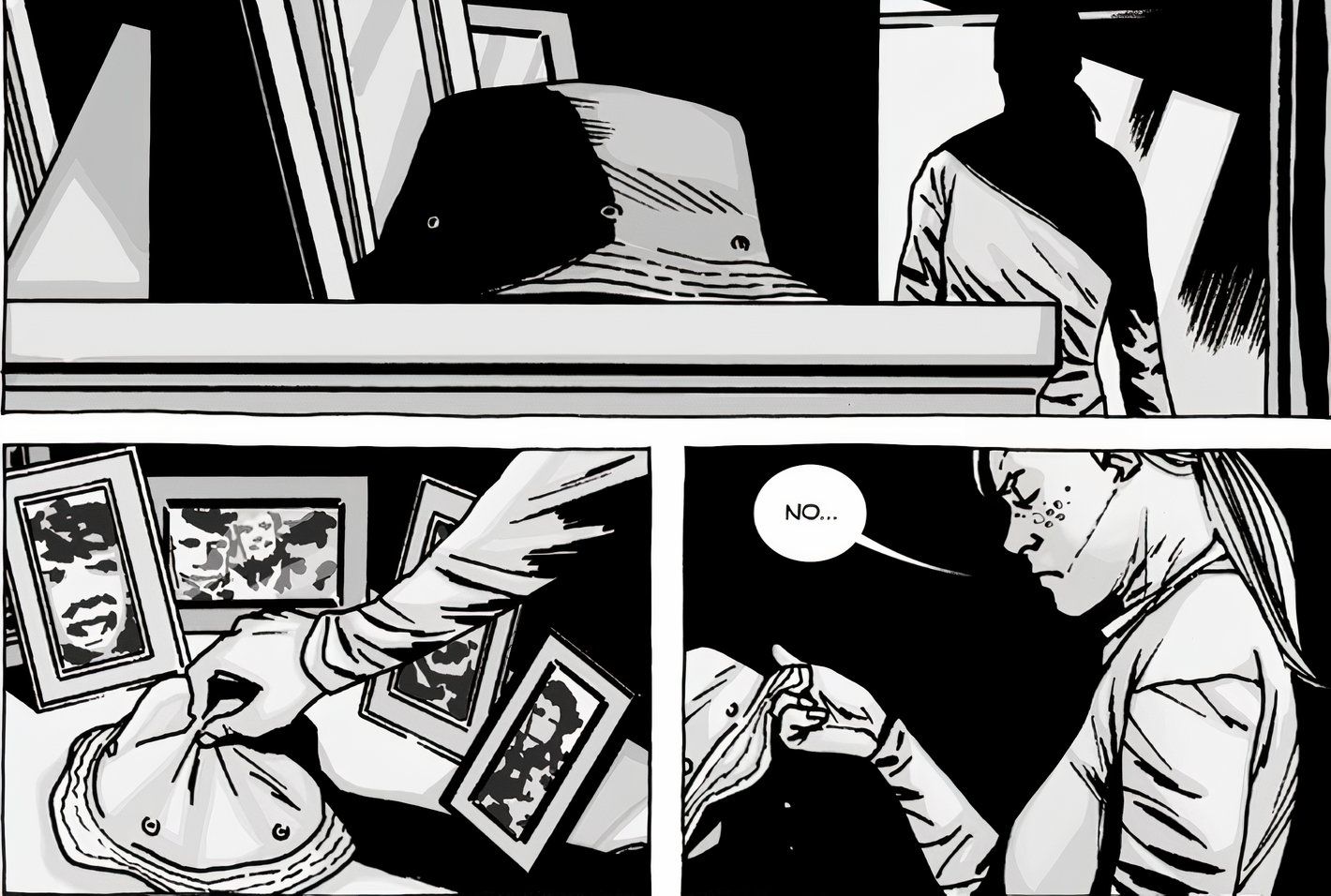
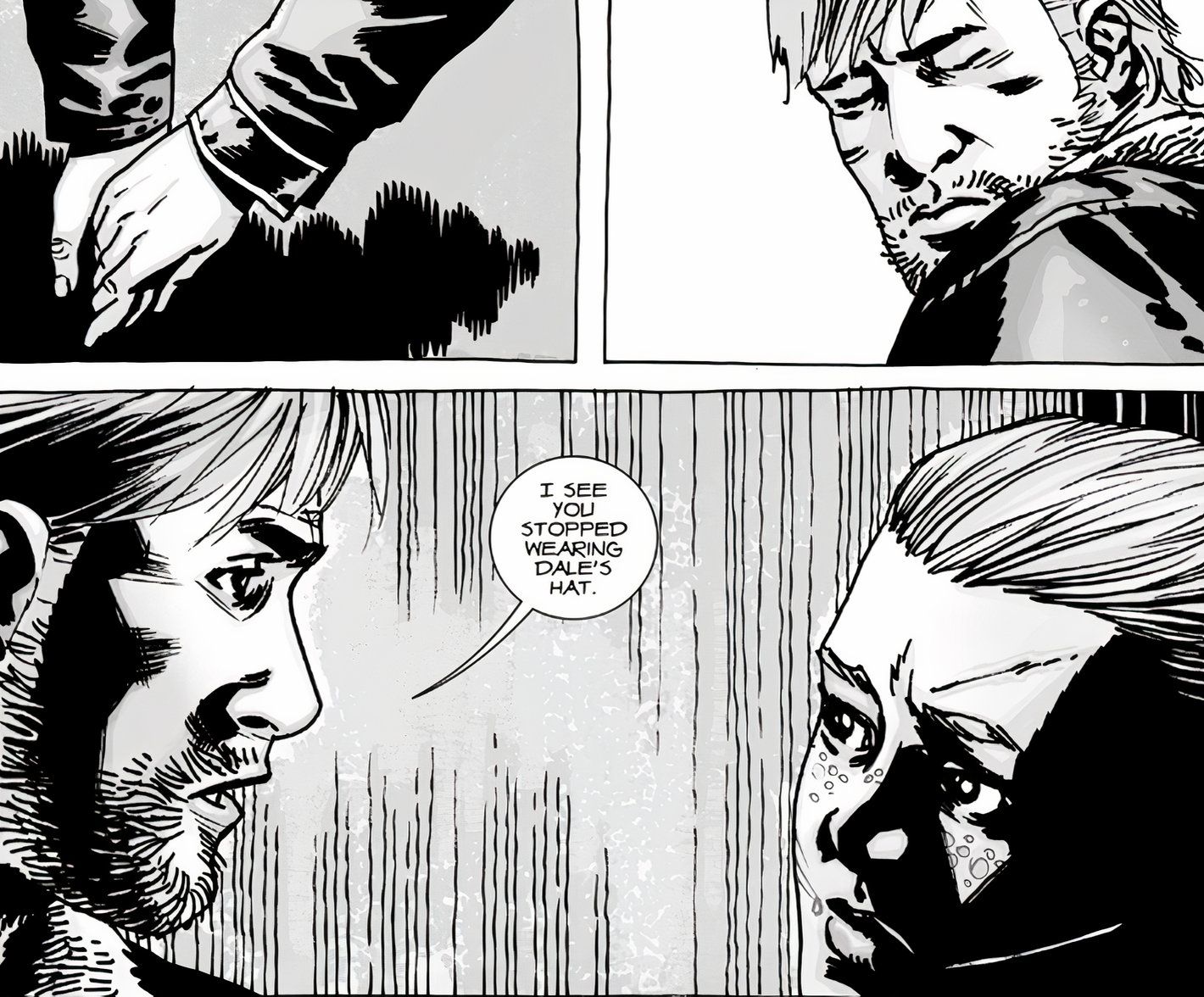
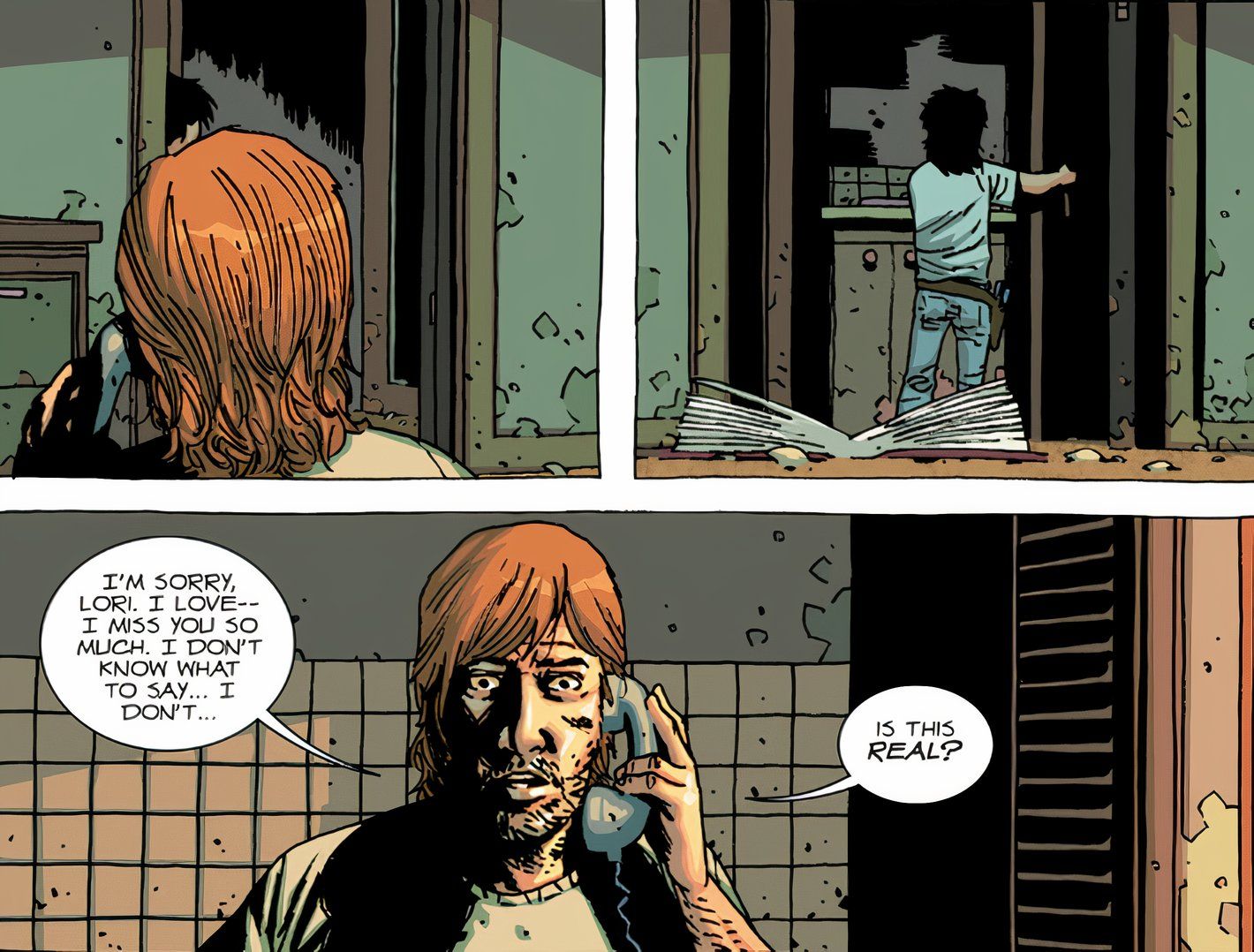
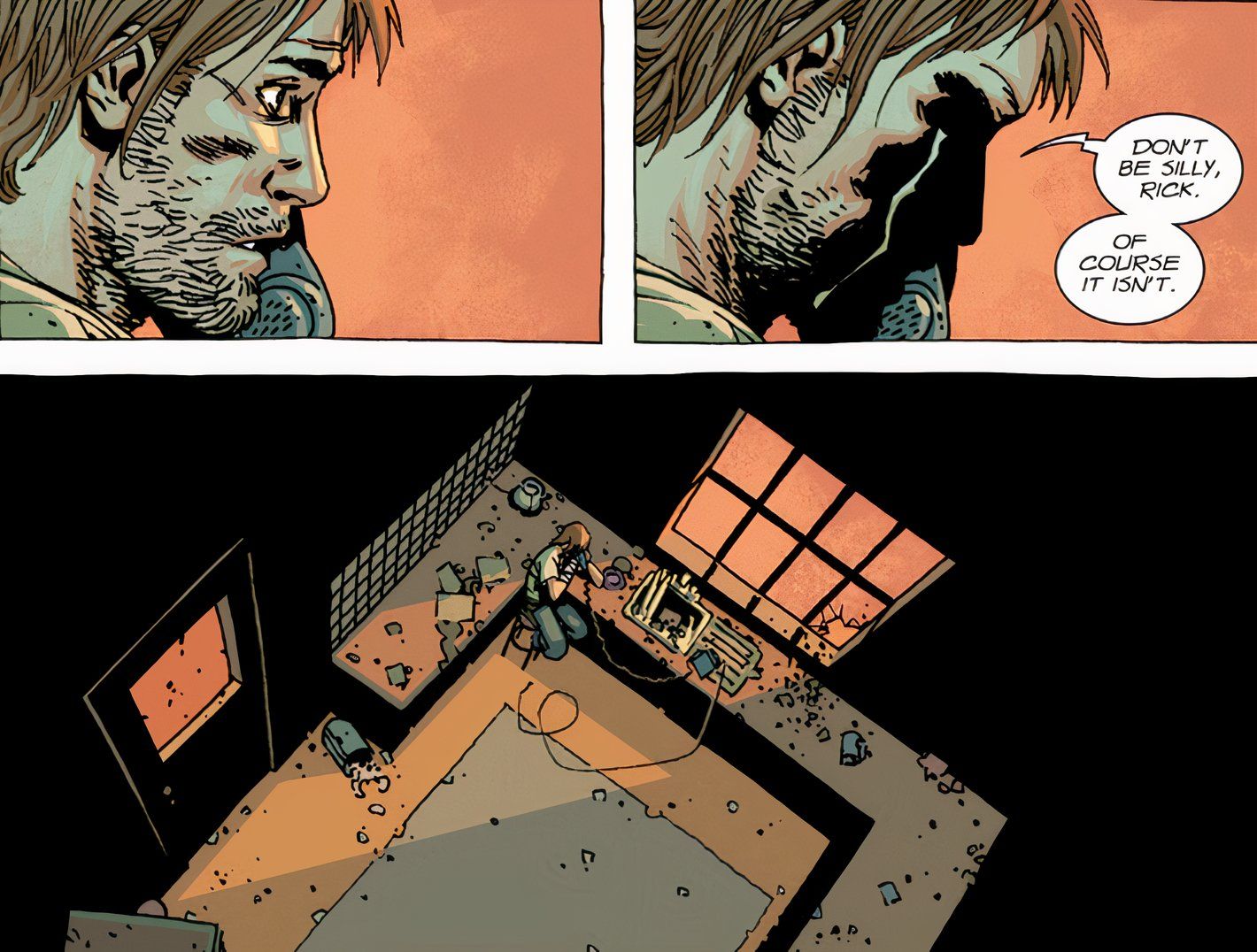
The emotional impact of the scene should hit harder than the shock of any character’s death. That said, it may be overlooked by readers, because it is quiet, as opposed to the loudness of the gore and traumatism that became synonymous with The Walking Dead franchise.
In his “conversation” with Lori from The Walking Dead #51, Rick Grimes is presented at his most vulnerable. To a degree, his increasing hardness throughout the remainder of the series is a reaction to how he felt in the aftermath of Lori and Judith’s death. Rick quickly had to cover up his extreme guilt and despair over the deaths of his family, and even when he emotionally opened up to other characters at times in subsequent issues of the series, there was always something guarded about him.
The Walking Dead #51 is Rick totally unguarded, processing his loss in a way that the series would have little time for moving forward, by its nature. The emotional impact of the scene should hit harder than the shock of any character’s death. That said, it may be overlooked by readers, because it is quiet, as opposed to the loudness of the gore and traumatism that became synonymous with The Walking Dead franchise. This is aided precisely by artist Charlie Adlard’s rendering of the scene, which accentuates how deeply alone Rick Grimes at this moment.
There Was Never Any Escape For Rick Grimes
The Walking Dead Deluxe #51 – Written By Robert Kirkman; Art By Charlie Adlard; Color By Dave McCaig; Lettering By Rus Wooten

One of the lasting images from The Walking Dead #51 is Rick with the phone to his ear, standing in front of a window pane that connotes the bars of a cell…This is visually representative of the existential prison Rick Grimes exists in – he is consumed by grief, but has no time to grieve.
One interesting thing about The Walking Dead #51 is the way it toys with the idea that Rick has lost touch with reality early, while having him come to terms with his loss over the course of the issue. This results in an even greater emotional impact, as even after Rick realizes he is hallucinating Lori’s voice, he continues to talk to her. In other words, by the end of the single issue’s arc, Rick has begun to willfully engage with the fantasy that he is speaking to his wife.
It is an aching psychological touch, one that cements this scene as one of The Walking Dead’s narrative high points. Again, Charlie Adlard’s art is equally important to the success of the moment, as one of the lasting images from The Walking Dead #51 is Rick with the phone to his ear, standing in front of a window pane that connotes the bars of a cell. In a way, this is visually representative of the existential prison Rick Grimes exists in – he is consumed by grief, but has no time to grieve.
It was moments like Rick, alone in a run-down house, talking to his dead wife on a broken telephone, that made The Walking Dead’s shocking violence and character deaths more than just an end-in-itself. These things were part of a larger framework, which included surviving characters’ reactions. The Walking Dead #51 followed one of the most intense moments of the early years of the series, and provided an essential character moment for Rick. Moreover, it gave readers the most unexpectedly brutal moment in The Walking Dead’s consistently dramatic run.





